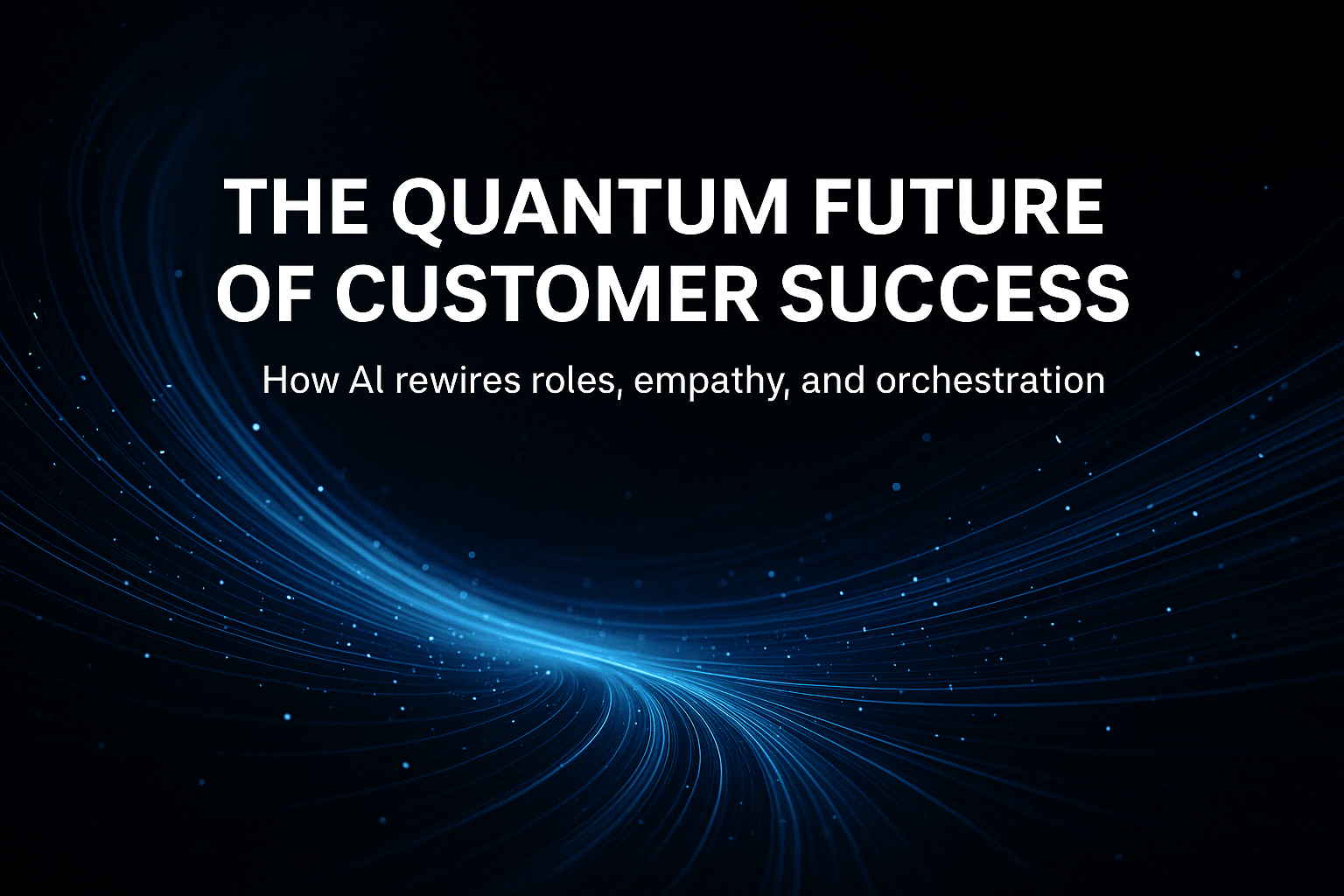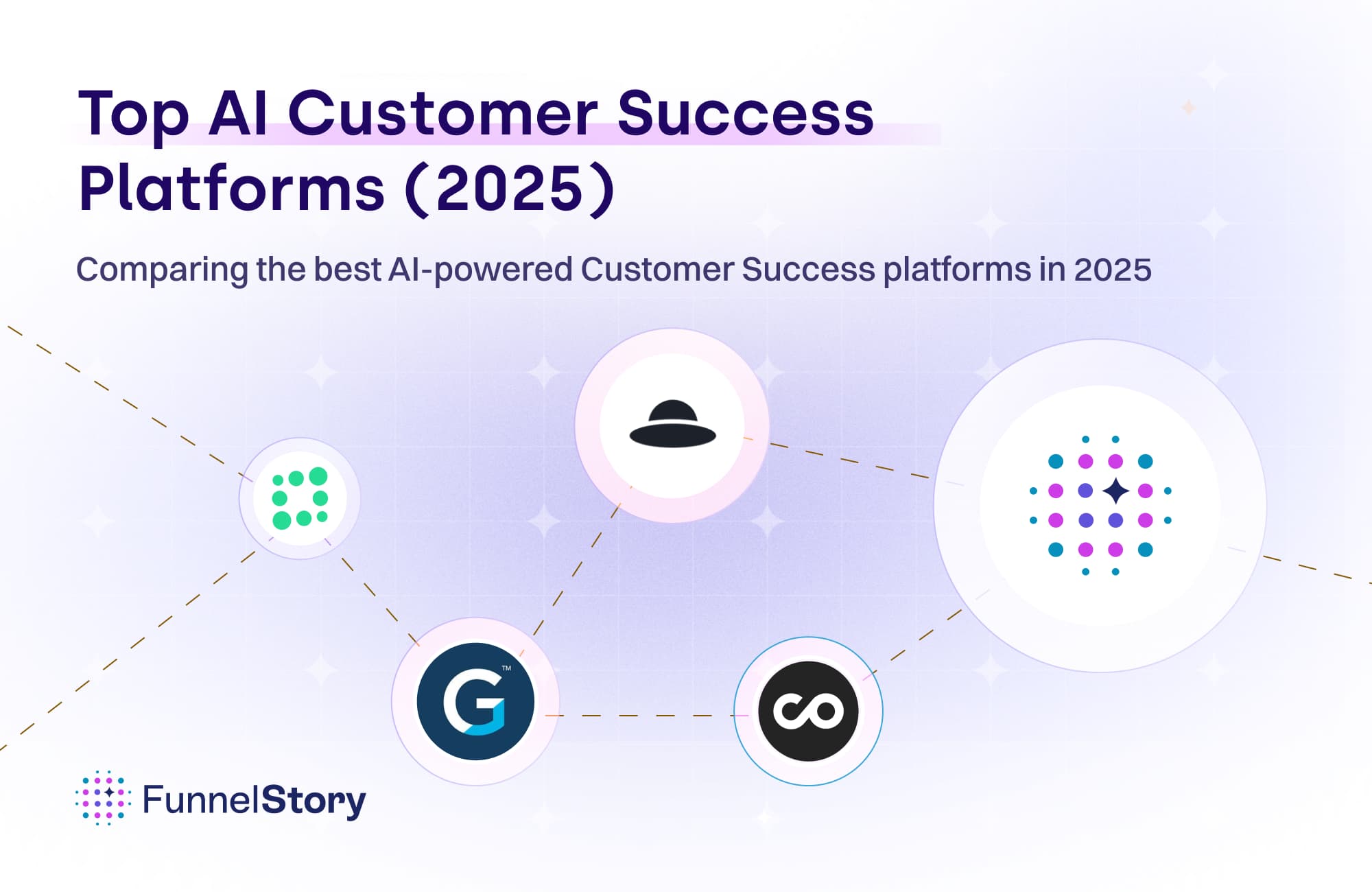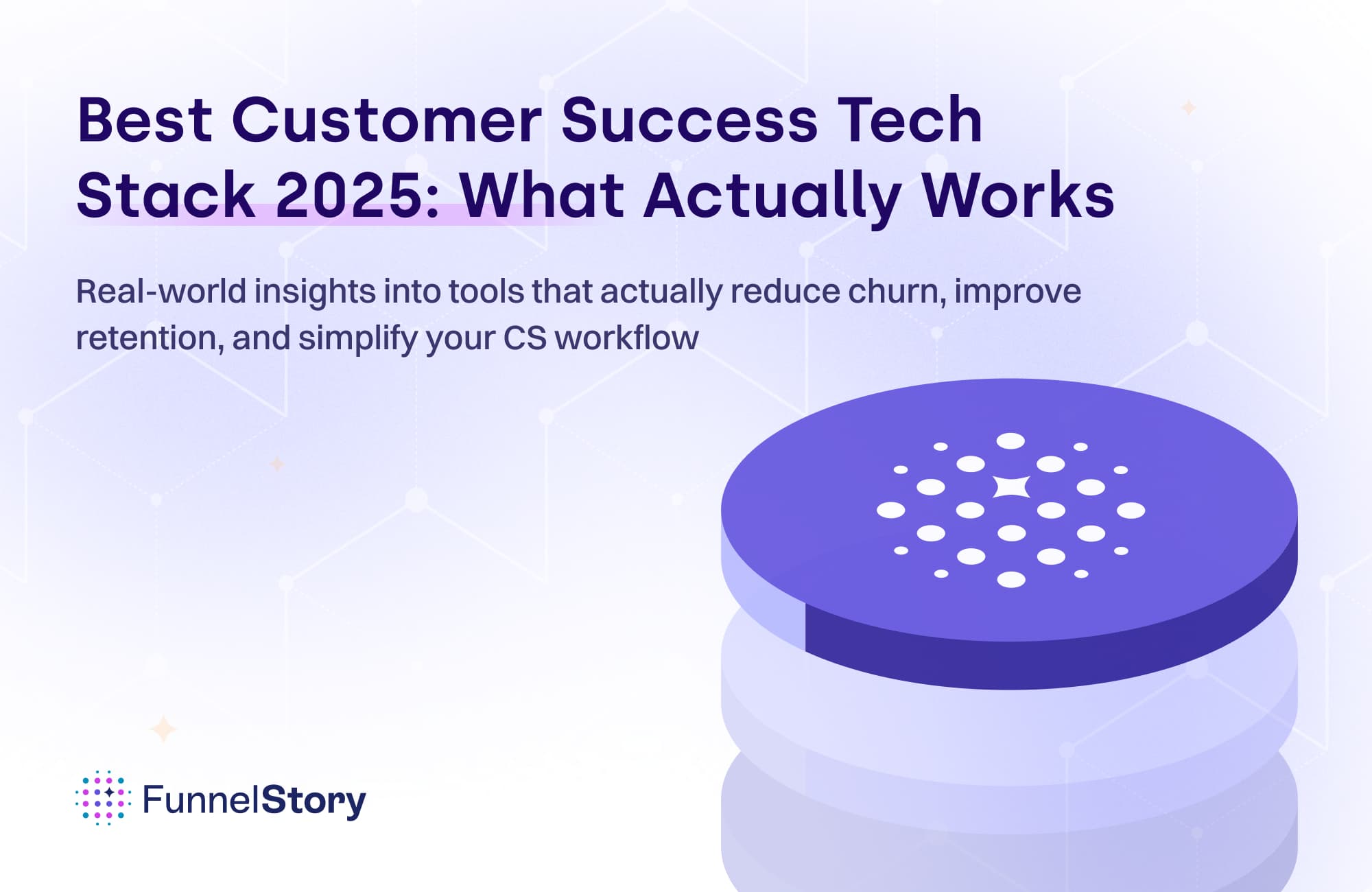In this article
How CSMs Use AI to Drive Results: Beyond the Hype
Discover how AI empowers Customer Success Managers to predict churn, automate tasks, and drive retention with real-world use cases.

By Arun Balakrishnan
Cofounder and Head of Product
Sep 24, 2025
4 min read
I recently came across a Reddit thread where a CSM was asking their peers about practical AI use cases after their boss asked them to "look into what we can do with AI this year." The frustration was palpable. While customer experience teams are making strides with AI-powered support, many CSMs are still struggling to find concrete ways AI can improve their day-to-day work and customer retention efforts.
This resonates deeply with me because I've been exploring this exact challenge. Recently, I spoke at the San Francisco Customer Success Meetup about the role of AI in customer success, and what I shared might help CSMs who are in the same boat as that Reddit poster.
The Real Problem: CSMs Are Drowning in Tools and Data
Before diving into AI solutions, let's acknowledge the core issue. Most CSMs are juggling multiple platforms to get a complete picture of their accounts. They're switching between:
Product analytics dashboards
Support ticketing systems
CRM platforms
Email threads
Slack conversations
Customer health score tools
This constant context switching is productivity poison. You spend more time hunting for information than actually helping customers succeed.
Four Practical AI Applications That Actually Work
Based on real implementations and feedback from CS teams, here are the areas where AI is making a tangible difference:
1. Effortless Data Access and Understanding
Traditional product usage analysis required engineering resources and complex SQL queries. This created bottlenecks and made data access a luxury rather than a standard workflow component.
AI changes this dynamic completely. Instead of waiting weeks for custom reports, CSMs can now ask natural language questions like:
"Which customers haven't logged in this month?"
"Show me accounts with declining feature adoption"
"What's the average time to first value for our enterprise customers?"
The democratization of data access means CSMs can make informed decisions in real-time rather than relying on gut feelings or outdated reports. 52% of CS organizations are using AI, and a 2024 survey of Customer Success professionals found that 52% of CS teams are already using artificial intelligence in some capacity.
2. Data-Driven Customer Profiling
Many companies think they know their Ideal Customer Profile (ICP), but they're often basing it on sales data or assumptions rather than actual product value realization.
AI excels at pattern recognition across large datasets. By analyzing product usage patterns, you can identify the common characteristics of customers who are actually deriving the most value from your product. This isn't just about demographics or firmographics; it's about behavioral patterns that predict success.

AI leverages multiple predictive signals including product usage, conversational insights, and firmographics to identify patterns that drive customer success and revenue growth.
This insight transforms how you approach customer segmentation and resource allocation. Customer success AI can identify customers who are likely to churn and trigger targeted retention campaigns to drive deeper product adoption.
3. Personalized Engagement Strategies
Manual customer journey mapping is time-intensive and often based on limited sample sizes. AI can analyze historical data across your entire customer base to identify optimal engagement patterns.
The key insight here is understanding what actions typically lead to customer success, then proactively guiding customers who are deviating from that path. Instead of reactive firefighting, you're implementing preventive customer success.
58% of CSMs say customer onboarding has the highest potential for AI-driven productivity gains. This makes sense because AI for CS helps refine customer onboarding by helping teams create personalized and optimized journeys.
4. Centralized Information Hub
This is where AI becomes a CSM productivity multiplier. Instead of switching between multiple tools, AI can serve as a central information hub that responds to natural language queries.
Imagine asking: "Give me a complete overview of [Customer Name]'s account status" and receiving a comprehensive summary that includes:
Recent support ticket themes
Product usage trends
Contract details
Recent company news or changes
Engagement history
This eliminates tool switching and allows CSMs to focus on relationship building rather than information gathering. About 30%-35% of the CSM workload consists of either prepping for customer meetings or managing the content and action items that come out of those meetings.
The Productivity Impact Is Real
The numbers speak for themselves when it comes to AI's impact on customer success productivity:
AI-enabled customer service teams save 45% of the time spent on calls, resolve customer issues 44% faster, and experience a 35% increase in the quality and consistency of support
By automating manual tasks with AI, sales pros are able to save two hours and 15 minutes a day
Companies now use Copilot to automate research, compile insights, and build presentations, saving 90 minutes per task
7.5 hours per week were saved by employees using AI systems, increasing overall efficiency by 20% in major consulting firms

AI implementation allows CSMs to manage larger account portfolios more effectively, resulting in improved ratios and significant cost savings for organizations.
For CSMs ready to move beyond the hype and start driving real results with AI, explore how FunnelStory's AI Tasks can transform your daily workflow, or learn more about using AI to eliminate busywork in customer success.




